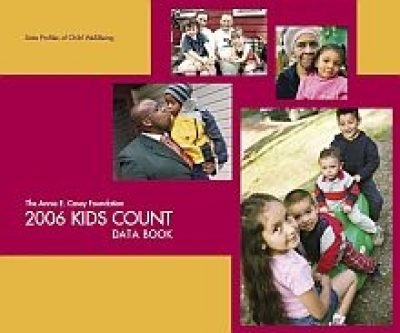Low Birthweight
Between 2000 and 2003, the percent of babies born with low birthweight increased from 7.6% to 7.9% of all births. During the same period, the infant mortality rate remained the same.

The KIDS COUNT Data Book is an annual publication that assesses child well-being nationally and across the 50 states. The 2006 report begins with an essay, "Family, Friend, and Neighbor Care: Strengthening a Critical Resource to Help Young Children Succeed." The essay makes a strong case for improving the quality of this type of care given its frequent use, especially among low-income families. Providers need far more training and support than they currently receive. Technical assistance, better integration with other community child care providers, greater financial support from state and local governments as well as higher standards would go a long way toward raising the quality of family, friend and neighbor care. Given the critical role of the early years in healthy child development, the essay argues that addressing these issues should be a critical priority.
The remainder of the report provides national and state data on 10 indicators that reflect a range of factors affecting child well-being, particularly health, adequacy of income, and educational attainment. Based on a composite index of the 10 indicators, the three highest ranked states for overall child-being were New Hampshire, Vermont and Connecticut; the three lowest ranked states were Mississippi, Louisiana and New Mexico. Across the 10 indicators, there was little change in child well-being at the national level since 2000.
Family, friend and neighbor child-care providers contribute to the healthy development of young children, and they help determine how ready millions of American children are to learn and succeed. At the same time, these critical caregivers often are undervalued and under-supported.